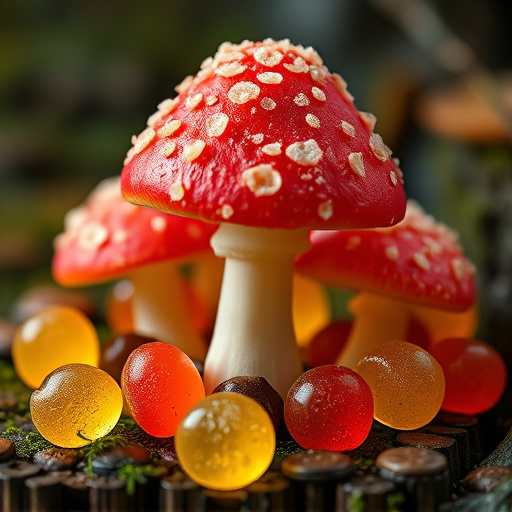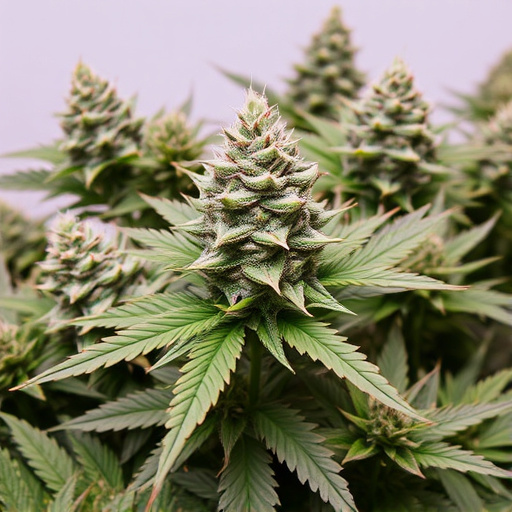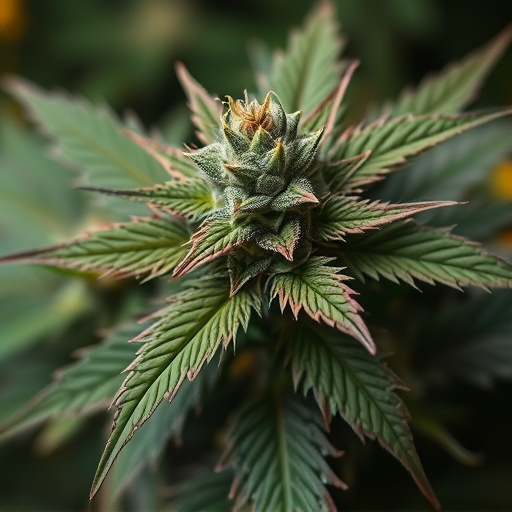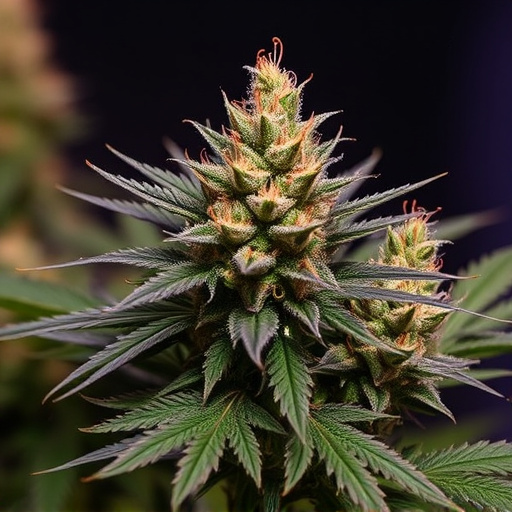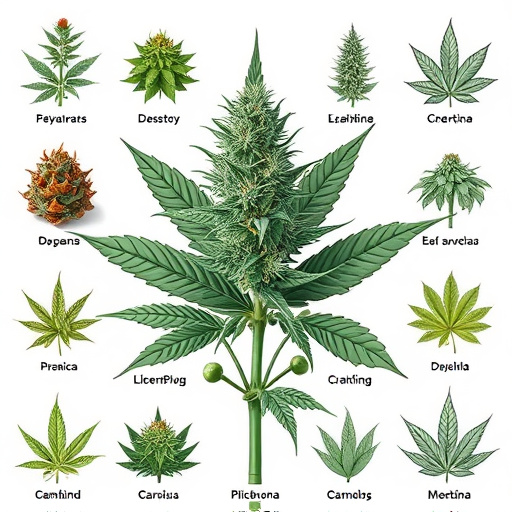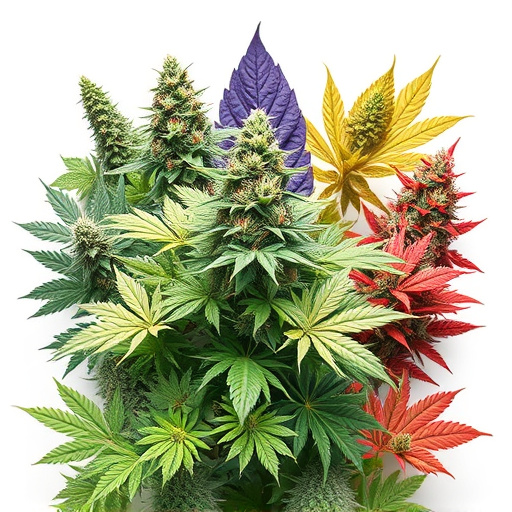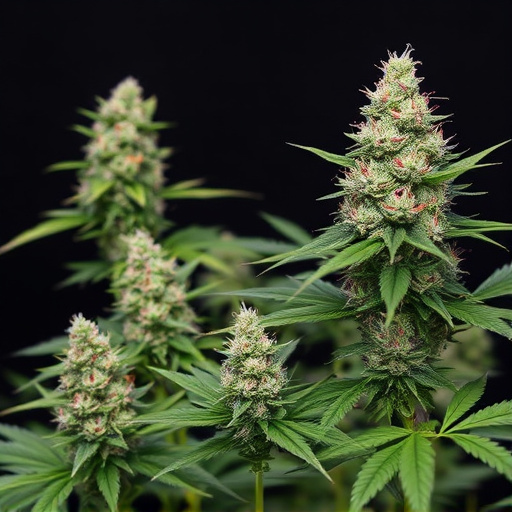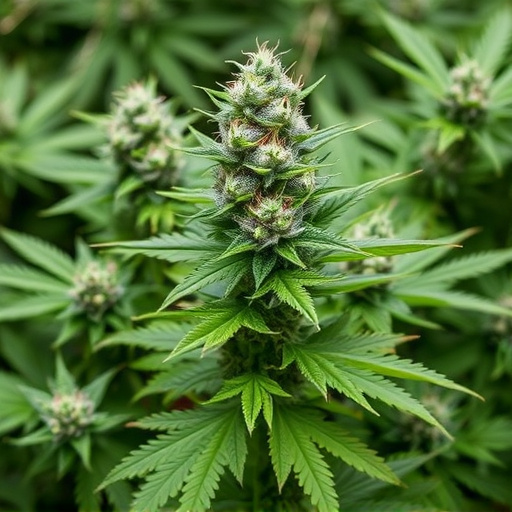Medical marijuana strains, enriched with THC and other cannabinoids, interact with the body's endocannabinoid system, affecting critical neurotransmitters like dopamine and serotonin that regulate mood, pleasure, motivation, and reward. THC mimics endocannabinoids by binding to receptors in areas associated with pleasure and memory, leading to increased dopamine release and "feel-good" responses such as euphoria and relaxation. CBD-rich strains, on the other hand, modulate serotonin levels, offering therapeutic potential for anxiety and sleep disorders. Understanding these interactions is crucial for personalized medical marijuana treatment plans.
Cannabis has long been known for its impact on the human mind, but its effects on neurotransmitters like dopamine and serotonin remain a subject of intense interest. This article delves into the intricate relationship between cannabis consumption and these key players in pleasure and mood regulation. We explore how different medical marijuana strains may influence neurotransmitter systems, offering insights that could shape future research and therapeutic applications. Understanding these mechanisms is crucial for navigating the potential benefits and risks of medical marijuana strains.
- Understanding Dopamine and Serotonin: The Neurotransmitters of Pleasure and Mood Regulation
- The Impact of Cannabis on Dopamine and Serotonin Systems
- Medical Marijuana Strains and Their Potential Effects on Neurotransmitters
Understanding Dopamine and Serotonin: The Neurotransmitters of Pleasure and Mood Regulation
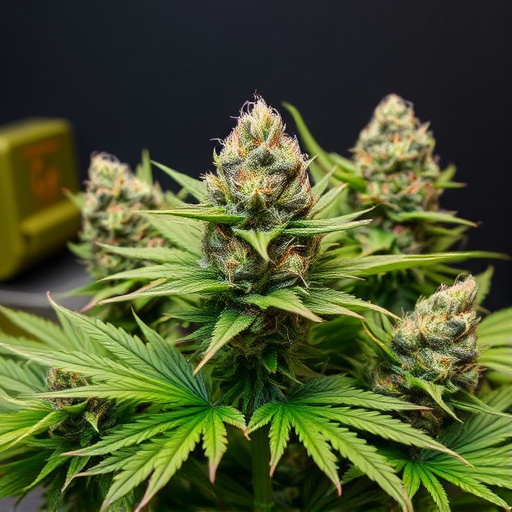
Dopamine and serotonin are two essential neurotransmitters that play a significant role in regulating mood, pleasure, motivation, and reward. Often referred to as the “feel-good” chemicals, they are integral to our emotional well-being and overall mental health. Dopamine is associated with pleasure, reinforcement of rewarding behaviors, and motor control, while serotonin influences mood, appetite, sleep, and cognitive functions.
These neurotransmitters are involved in complex neural interactions within the brain. When an individual consumes medical marijuana strains, which contain compounds like THC (tetrahydrocannabinol), it can interact with the endocannabinoid system and affect dopamine and serotonin levels. This interaction may contribute to the psychological effects of cannabis, including feelings of euphoria, relaxation, or heightened sensory perception, as experienced by users of medical marijuana.
The Impact of Cannabis on Dopamine and Serotonin Systems
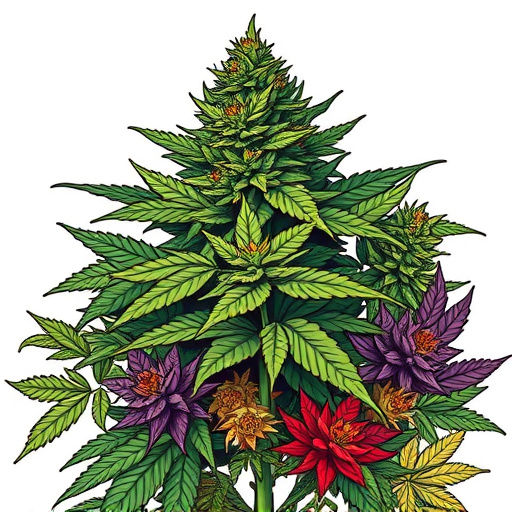
Cannabis has a complex relationship with the brain’s dopamine and serotonin systems, which play key roles in reward, motivation, mood, and cognitive functions. When an individual consumes medical marijuana strains, tetrahydrocannabinol (THC), the primary psychoactive compound, directly interacts with these neurotransmitter systems. THC mimics the action of endocannabinoids, binding to receptors primarily located in areas of the brain associated with pleasure, memory, and motor control. This interaction can lead to increased dopamine release, enhancing feelings of pleasure and reward.
However, cannabis’s effect on serotonin is more nuanced. While some studies suggest that THC may temporarily reduce serotonin levels, others indicate that it could potentially stimulate serotonin production in certain regions of the brain. Serotonin’s involvement in mood regulation suggests that this interaction might contribute to the varying emotional responses observed after consuming medical marijuana strains. Understanding these intricate relationships highlights the complex nature of cannabis’s impact on the brain and underscores the need for further research into its therapeutic potential and effects on mental health.
Medical Marijuana Strains and Their Potential Effects on Neurotransmitters
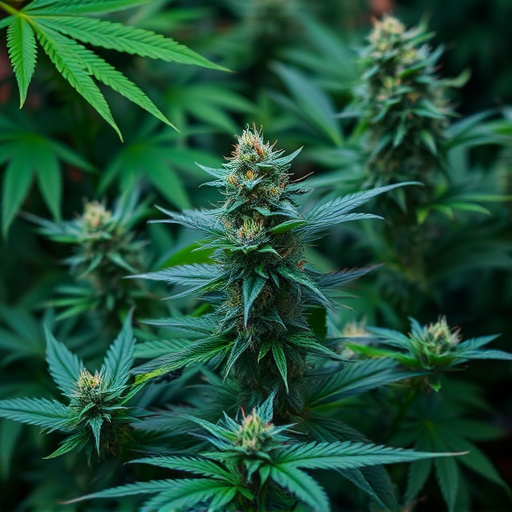
Medical marijuana strains have gained attention for their potential to influence neurotransmitters like dopamine and serotonin, key players in regulating mood, pleasure, and motivation. Different strains, with their varying cannabinoid profiles, can interact differently with our endocannabinoid system, which in turn affects these neural chemicals. For instance, strains high in THC (tetrahydrocannabinol), the compound responsible for marijuana’s psychoactive effects, may stimulate dopamine release, leading to feelings of euphoria and reward. This interaction could be beneficial for treating conditions like depression or chronic pain, where boosting dopamine levels is desired.
On the other hand, strains rich in CBD (cannabidiol) are known to have a more nuanced effect on neurotransmitters. Research suggests that CBD may help regulate serotonin levels, which can influence anxiety and sleep. By modulating both dopamine and serotonin, certain medical marijuana strains could offer therapeutic potential for complex conditions like post-traumatic stress disorder (PTSD) or social anxiety disorders. Understanding these strain-specific effects is crucial for healthcare professionals to prescribe appropriate medical marijuana treatments tailored to individual needs.
Cannabis’s effect on dopamine and serotonin systems, key players in pleasure and mood regulation, offers insights into both its recreational and therapeutic potential. While regular cannabis use can temporarily elevate these neurotransmitters, the long-term impact varies. Medical marijuana strains, with their diverse cannabinoid profiles, may provide targeted support for individuals seeking relief from conditions like anxiety or depression. However, further research is needed to fully understand the complex interplay between cannabis and these neurotransmitters, particularly in the context of different medical marijuana strains.




